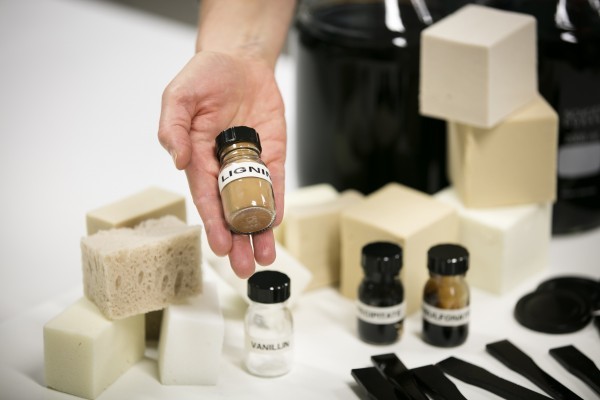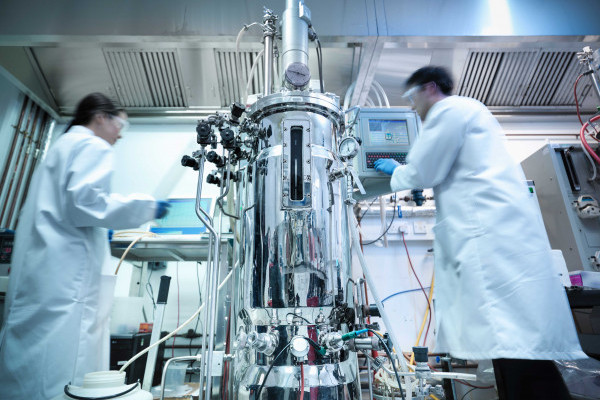News
02-10-2020
Unique Lignin Oligomers for the Design of Tunable Polyurethane Bioresins
Biorizon co-initiator VITO has made considerable progress in the use of depolymerized lignin for application development. A recent scientific publication in ACS' Biomacromolecules shows that aldehyde-assisted fractionation (AAF) of lignocellulosic biomass, a defined process to depolymerize lignin from lignocellulosic feedstock, can be used for the creation of sustainable polyurethane with premium properties. Now, VITO will be able to process large amounts of lignin into depolymerized oil via their LignoValue Pilot Plant by the end of 2021.
Depolymerization of aldehyde-assisted fractionation (AAF) lignin
Thanks to chemical stabilization, aldehyde-assisted fractionation (AAF) of lignocellulosic biomass has recently emerged as a powerful tool for the production of largely uncondensed lignin. Depolymerization of AAF lignin via ether cleavage provides aromatic monomers at near theoretical yields based on ether cleavage and an oligomeric fraction that remains largely unexploited despite its unique material properties.
Bio-aromatic oligomers outperform technical Kraft lignin
In a scientific publication that was recently published by the American Chemical Society the authors – among whom various VITO employees - present an in-depth analytical characterization of AAF oligomers derived from hardwood and softwood in order to elucidate their molecular structures. These bio-aromatic oligomers surpass technical Kraft lignin in terms of purity, solubility, and functionality and thus cannot even be compared to this common feedstock directly for material production.
New design principles for lignin-derived biopolymers with tailored properties
Instead, the authors performed comparative experiments with Kraft oligomers of similar molecular weight (Mn ∼ 1000) obtained through solvent extraction. These oligomers were then formulated into polyurethane materials. Substantial differences in material properties were observed depending on the amount of lignin, the botanical origin, and the biorefining process (AAF vs Kraft), suggesting new design principles for lignin-derived biopolymers with tailored properties. These results highlight the surprising versatility of AAF oligomers towards the design of new biomaterials and further demonstrate that AAF can enable the conversion of all biomass fractions into value-added products.
- Read the entire publication Aldehyde-Assisted Lignocellulose Fractionation Provides Unique Lignin Oligomers for the Design of Tunable Polyurethane Bioresins
- Read a blog post by co-author Richard Vendamme.
Outlet for LignoValue Pilot
This application is an important step to show that depolymerized lignin offers advantages and becomes even more interesting when realizing that a pilot plant will be ready soon for the production of bio-aromatics from lignin, where VITO will be able to process significant amounts of biomass as feedstock for this pilot.
In 2018, Biorizon co-initiator VITO and partners have launched the EFRO LignoValue Pilot project. By May 2021, this € 4.3 million project must result in a functioning pilot plant in Flanders for the production of bio-aromatics from lignin, which is obtained from biomass. The pilot meets the needs of various companies that have expressed an interest in innovative molecules and a willingness to carry out application testing.
Often the development of applications can only be done at kg scale, if not 100 kg scale, to enable detailed properties’ testing. The LignoValue Pilot plant allows the production of these larger amounts of bio-aromatic fractions, as such allowing companies to take further steps in their application development path.
More information
For more information, please contact Biorizon’s Lignin to Bio-Aromatics Horizon Manager Karolien Vanbroekhoven at karolien.vanbroekhoven@vito.be or +32 (0)4 93 51 42 70.









